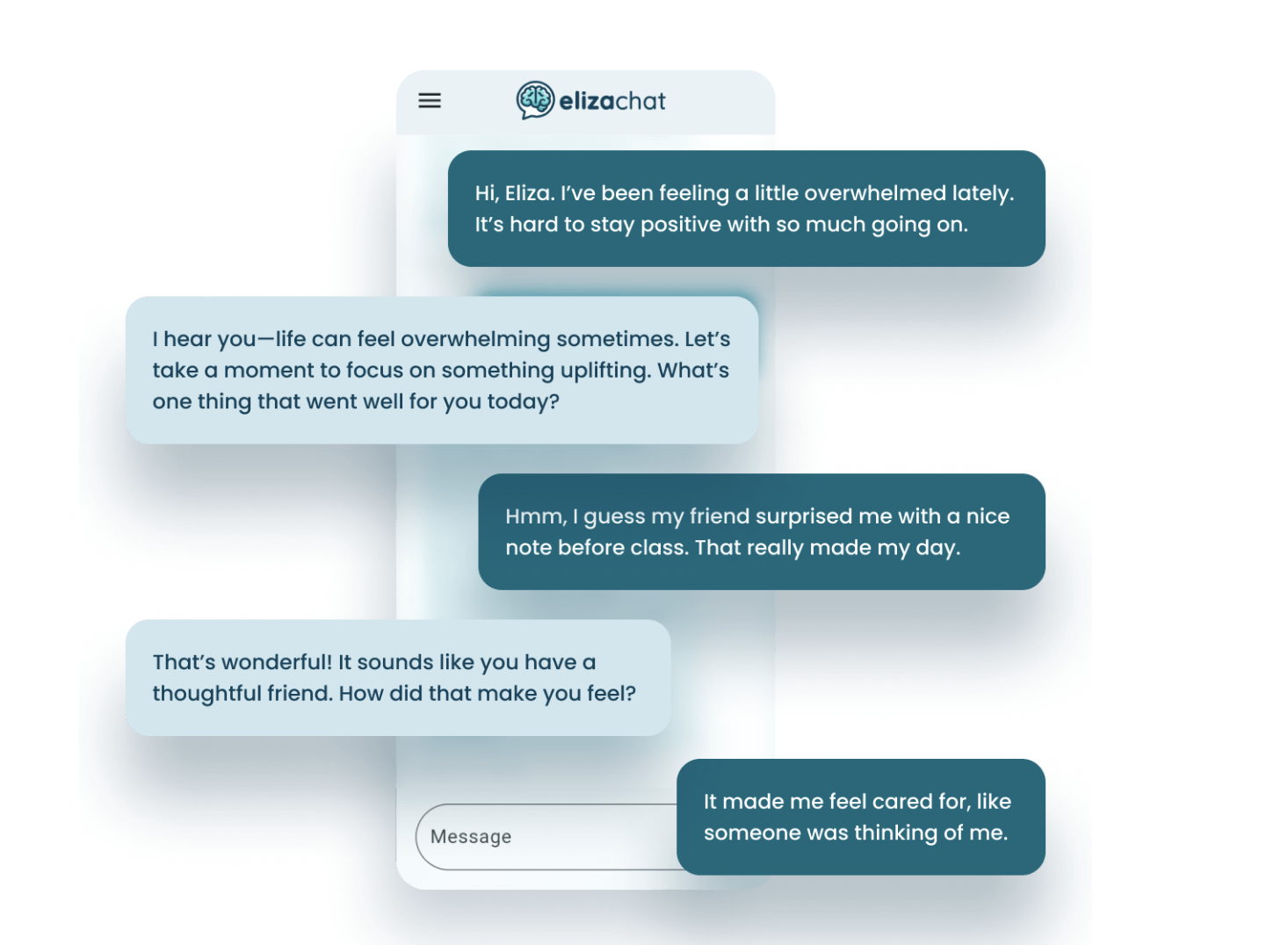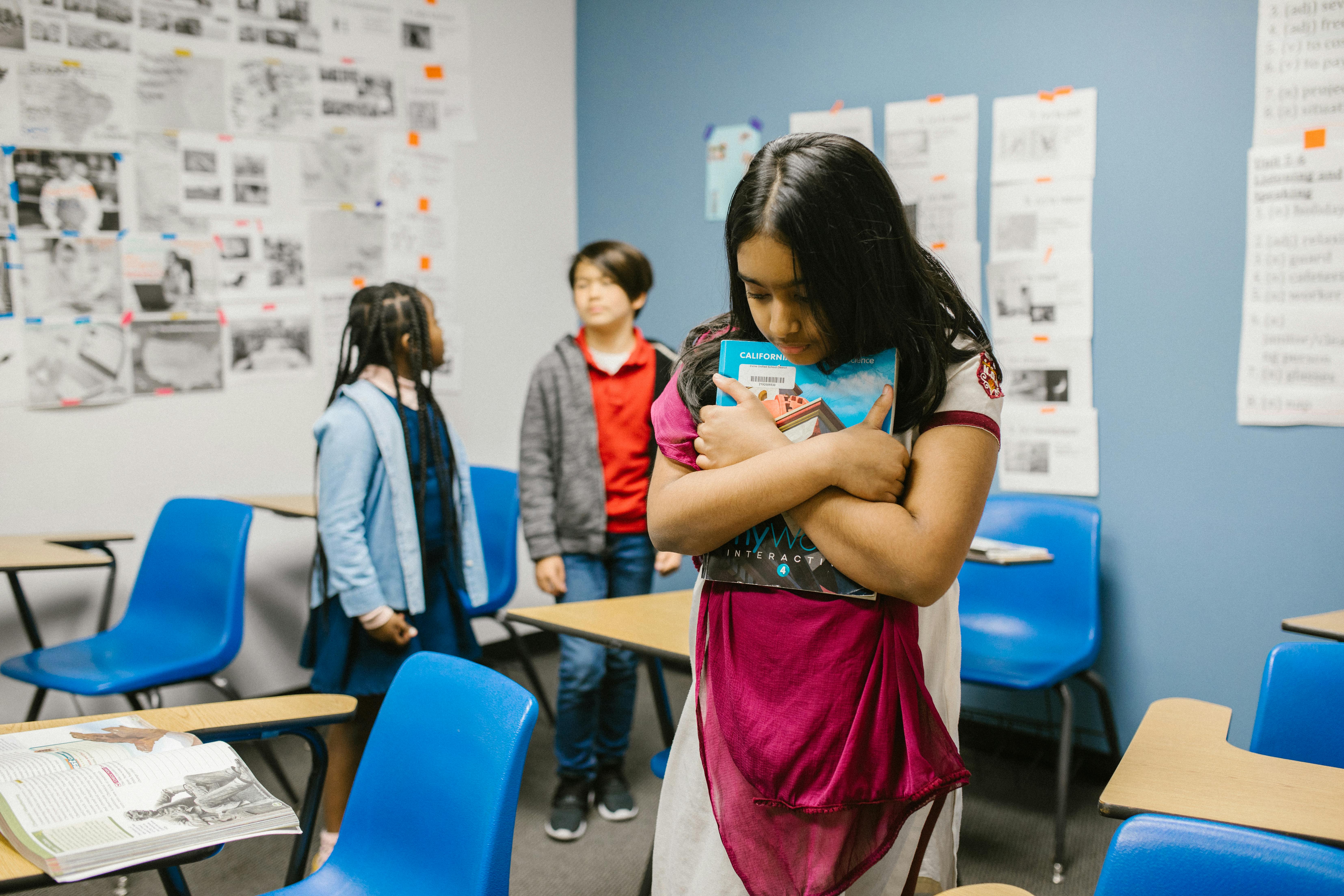4 Tips For Using AI Chatbots For Student Mental Health Support
More and more students are turning to AI for mental health help. One district found a way to make those interactions safer.

Tools and ideas to transform education. Sign up below.
You are now subscribed
Your newsletter sign-up was successful
Students are regularly talking to AI chatbots about mental health problems, say Taylor Sidwell and Autumn Whiteman from Hardin Public Schools in Hardin, Montana. That’s why Sidwell, the principal of Hardin Academy, and Whiteman, a counselor at the same school, believe it's so important that school counselors and leaders think about how to facilitate healthy and safe mental health student and AI interactions.
Here are their tips for providing effective AI-assisted mental health support
1. Realize Students Are Already Turning to AI Chatbots
“Word has gotten out on social media that AIs will talk about problems, and so kids have been putting their problems into AI,” Whiteman says, who adds that she’s seen this trend really take off this year. “Students already talk to AI.”
That’s part of the reason, Whiteman believes working with an AI chatbot specifically designed, trained and tested for mental health can be beneficial to schools. It will not only provide students with better answers and support, it can notify school officials if the student says anything that requires an elevated intervention.
Students at Hardin Academy have access to ElizaChat, a chatbot supervised and trained by psychologists, therapists, and clinicians.
2. Learn From How Students Are Using AI
Facilitating student interaction with a mental health AI chatbot can be a valuable first-line intervention for students, Whitehall has found with her student population.
“It's given them a space where they can talk to an AI about stuff that maybe they couldn't talk to with their friends or with their family, that they maybe feel a little bit alone with, and it'll have that space for them to explore that,” Whiteman says.
Tools and ideas to transform education. Sign up below.
The content of these conversations stays private, but a chatbot can help a school understand the type of questions and concerns students have. Sidwell says they see a lot of students interacting with AI with questions about school pressures as well as typical high school drama. He notes that when issues are flagged by more than one student, school leaders have the opportunity to look whether there is a larger issue the school needs to address.
3. Get Informed Consent
Whiteman believes students using this type of tool should understand what parts of the conversation might be reported. To accomplish this, she uses the same approach she does with her conversations with students.
“I’m really big on informed consent, and so I definitely let the students know when they're talking with me as a school counselor, they can talk to me and what’s shared with me stays safe with me, unless it's about harming themselves, or harming others, or suicidal ideation, things like that,” she says.
ElizaChat has similar reporting requirements, and Whiteman says that it's important to make sure students are aware of that.
4. Use AI Mental Health Chatbots In Conjunction With Professionals
Sidwell says school leaders should learn to work with AI.
“It's here, it's not leaving,” he says, but educators still need to find proper uses.
Students also need to learn to properly use AI for mental health support. Sidwell's district had an instance in which students were intentionally telling the chatbot things they knew would trigger responses and concern from adults, which is obviously not ideal but can be addressed by educators.
Your school or district also needs to figure out how to get the most out of an AI chatbot in conjunction with traditional counseling.
“I don't think it'll ever replace an in-person counselor by any means, but it's a good starting point,” Sidwell says.
Erik Ofgang is a Tech & Learning contributor. A journalist, author and educator, his work has appeared in The New York Times, the Washington Post, the Smithsonian, The Atlantic, and Associated Press. He currently teaches at Western Connecticut State University’s MFA program. While a staff writer at Connecticut Magazine he won a Society of Professional Journalism Award for his education reporting. He is interested in how humans learn and how technology can make that more effective.

